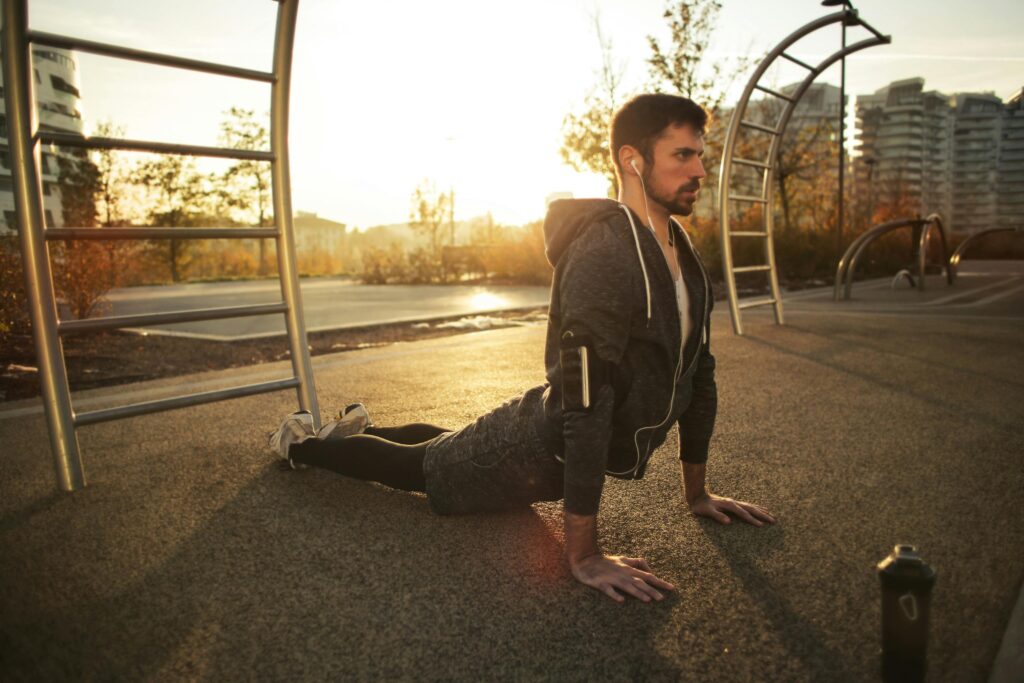Sleep Syncing 2025: Align with Your Body Clock for Health, Focus & Energy
💤 Introduction: Why Sleep Syncing 2025 Is More Than a Trend
Have you ever wondered why you feel groggy even after a full night’s rest? The secret might lie in sleep syncing 2025—a method that aligns your daily routines with your body’s circadian rhythm. This isn’t just another wellness buzzword; it’s a scientifically backed lifestyle shift that delivers consistency in energy, focus, and overall well-being. If you’re seeking sustainable performance and optimal health this year, sleep syncing is the habit you need to adopt.
🧬 Deep Dive: What Exactly Is Sleep Syncing?
Sleep syncing means structuring your sleep-wake cycle to follow your body’s internal master clock—the circadian rhythm housed in the brain’s suprachiasmatic nucleus (SCN) (National Sleep Foundation). This clock controls critical functions like melatonin release, digestion, temperature regulation, and alertness.
When your external behavior (light, meals, activity) aligns with your circadian signals, it helps regulate nearly every system in your body. Without synchronization, even sufficient hours of sleep can feel unrefreshing.
🧠 The Scientific Benefits of Sleep Syncing
Aligning your sleep with your circadian rhythm has profound health benefits:
- Hormonal balance: Proper melatonin and cortisol timing improve sleep and alertness.
- Metabolic support: Scheduled eating helps maintain healthy weight and digestion. National Sleep Foundation.
- Immune resilience: Consistent sleep strengthens immunity, reducing the risk of illness and inflammation. hms.harvard.edu Harvard Health.
- Mental clarity: More restorative sleep boosts memory, mood stability, and emotional regulation. Harvard Health.
- Lower risk of disease: Irregular sleep timing correlates with hypertension, diabetes, depression, and other chronic conditions. sleep.hms.harvard.edu thesun.co.uk.
🌞 Warning Signs You’re Out of Sync
- Difficulty falling asleep at a reasonable hour
- Morning grogginess despite sufficient hours
- Midday energy crashes
- Increased irritability or brain fog
- Sugar or caffeine cravings
⚠️ Chronic misalignment is associated with sleep apnea risks, earlier cognitive decline, and cardiovascular disease. economictimes.indiatimes.com and wired.com.
✅ 7 Expert Sleep Syncing Strategies for 2025
1. Maintain a Consistent Wake-Up & Bedtime
Consistency stabilizes your internal clock. Adults should aim for 7–9 hours per night, according to Harvard Health.
2. Seek Morning Sunlight Within 60 Minutes
Sunlight exposure early in the day helps suppress melatonin and reset your circadian clock. sleepfoundation.org
3. Time Your Meals Well
Finish dinner 2–4 hours before bed. Eating late affects your internal rhythm and melatonin onset (inc.com).
4. Limit Blue Light Exposure at Night
Blue light from screens delays sleep hormones. Use apps like F.lux or amber lighting after sunset (sleepfoundation.org).
5. Cut Caffeine After Early Afternoon
Avoid caffeine after 2 p.m. to prevent adenosine blockage and delayed sleep drive.
6. Create a Modern Wind-Down Routine
Dedicate 30–60 minutes pre-bedtime to relaxing, screen-free activities: reading, journaling, and breathing exercises.
7. Leverage Wearables and Apps
Track your patterns with tools like Sleep Cycle, Oura Ring, and Whoop to refine your routine.
🧩 Tools That Support Sleep Syncing in 2025
| Tool | Use Case | Free/Paid | Best Feature |
|---|---|---|---|
| Sleep Cycle | Sleep tracking + alarm | Freemium | Smart wake alarm and deep sleep analysis |
| Oura Ring | Comprehensive sleep data | Paid | Readiness score and detailed sleep stages |
| Whoop | Recovery & strain tracking | Subscription | Measures HRV, strain, and sleep optimization |
| Hatch Restore | Light-based wake-up device | Paid | Sunrise alarm aligned to your circadian cycle |
| F.lux | Blue light filtering | Free | Adjusts screen color temperature by sunset |
📸 Visual Assets with SEO-Optimized Alt Text
- Sunrise routine photo
Alt text: “Morning light sleep syncing 2025 routine” - Circadian rhythm diagram
Alt text: “How sleep syncing works—circadian rhythm 2025” - Image of a wearable tracking sleep
Alt text: “Top tools for sleep syncing 2025 health tracking”
🌿 Sleep Hygiene & Lifestyle Tips (Enhanced with Science)
Incorporate daily routines that support your circadian rhythm:
- Exercise: Try yoga, Tai Chi, or walking—shown to improve sleep quality and reduce insomnia symptoms. sleepfoundation.org, health.com.
- Bedroom setup: Keep it dark and cool (~65°F), reduce allergens, and avoid electronics in the bedroom as recommended by wellness experts bhg.com. Harvard Health.
- Sleep disorders: Recognize signs of advanced or delayed sleep phase, shift-work disorder, or jet lag. Behavior modification, light therapy, and melatonin may help sleepfoundation.org, National Sleep Foundation.
❓ FAQs: Sleep Syncing 2025
What is sleep syncing exactly?
It’s aligning your daily routines—especially sleep—with your body’s internal circadian rhythm for optimized rest and energy.
Is there science behind it?
Yes. Harvard and NIH-backed research links sleep syncing to improvements in cognitive, immune, and metabolic health.
How soon should I feel the benefits?
Consistent behavior often delivers noticeable results in 7–10 days, including better mood, alertness, and fewer crashes.
🔗 Related Reads
- How to Grow Hair Faster in 1 Week Naturally – Proven Tips for Quick Hair Growth
- 15‑Minute Fast Walking Daily Benefits for Longevity in 2025
🧠 Conclusion: Make 2025 the Year You Sync Your Sleep
Sleep syncing can transform your wellness through better sleep, sharper focus, and renewed energy. As modern life demands adaptability, aligning with your circadian rhythm offers an evidence-based, sustainable route to deeper health.
Which aspect will you adjust first—your wake-up time, bedtime routine, or meal schedule?



Pingback: Sleep Syncing: Wellness Trend 2025 for Better Health – linklaunchlab